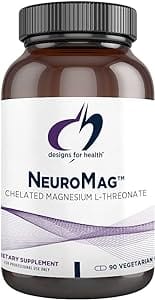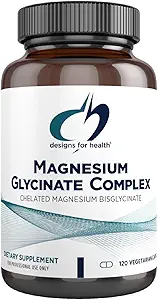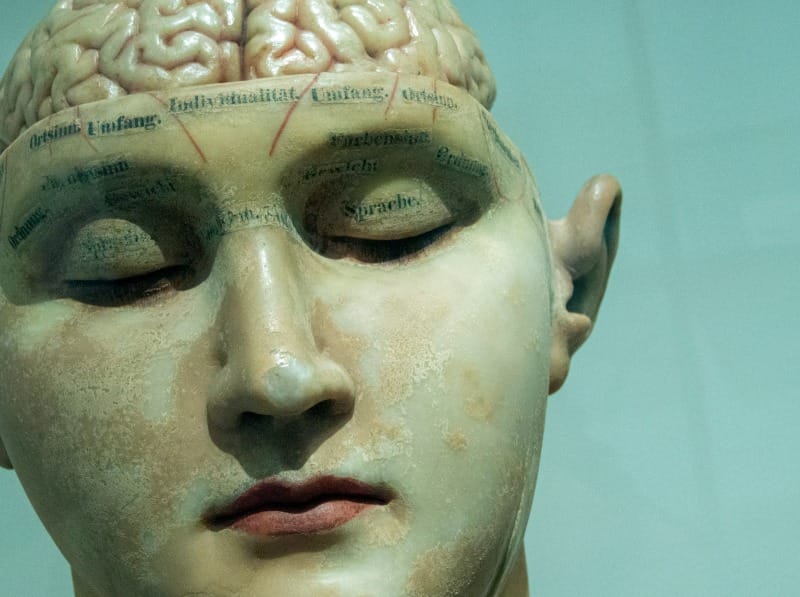Magnesium is a crucial mineral for our health, playing a role in hundreds of biochemical reactions in the body. However, not all forms of magnesium are created equal. Two popular supplements, magnesium threonate and magnesium glycinate, have gained attention for their unique properties and potential benefits. In this article, we'll explore the differences between these two forms of magnesium and their effects on brain health and overall well-being.


Key takeaways:
• Magnesium threonate may have superior brain-boosting properties
• Magnesium glycinate is known for its calming effects and high absorption
• Both forms have potential benefits for cognitive function and sleep
• The choice between the two depends on individual health goals
Magnesium glycinate vs threonate: Absorption and bioavailability
When it comes to magnesium supplements, absorption is key. Magnesium glycinate is known for its high bioavailability, meaning it's easily absorbed by the body. This form of magnesium is bound to glycine, an amino acid that enhances absorption and minimizes gastrointestinal side effects[1].
On the other hand, magnesium threonate, also known as magnesium L-threonate, has been specifically designed to cross the blood-brain barrier more effectively. This unique property allows it to potentially increase magnesium levels in the brain more efficiently than other forms[2].
Magnesium glycinate vs magnesium l-threonate: Cognitive benefits
Both forms of magnesium have shown promise in supporting cognitive function, but they may work through different mechanisms.
Magnesium L-threonate has gained attention for its potential to enhance learning and memory. A study published in the journal Neuron found that magnesium L-threonate increased synaptic density and improved cognitive performance in both young and aged rats[3].
Magnesium glycinate, while not specifically designed for brain health, may still offer cognitive benefits. Its calming properties can help reduce stress and anxiety, which in turn can improve focus and mental clarity[4].
Magnesium l-threonate vs magnesium glycinate: Sleep and relaxation
When it comes to sleep and relaxation, both forms of magnesium have their merits.
Magnesium glycinate is often recommended for its calming effects. The glycine component has been shown to promote relaxation and improve sleep quality[5]. This makes it a popular choice for those struggling with insomnia or anxiety-related sleep issues.
Magnesium L-threonate, while primarily studied for its cognitive benefits, may also indirectly improve sleep. By supporting brain health and reducing cognitive decline, it could potentially lead to better sleep patterns, especially in older adults[6].
Choosing the right magnesium supplement
The choice between magnesium threonate and glycinate ultimately depends on your specific health goals and needs. Here are some factors to consider:
• Brain health focus: If your primary goal is to support cognitive function and potentially slow age-related cognitive decline, magnesium L-threonate might be the better choice.
• Sleep and relaxation: For those primarily seeking better sleep and stress relief, magnesium glycinate could be more beneficial.
• Absorption concerns: If you have a sensitive digestive system, magnesium glycinate's gentle nature might make it a more suitable option.
• Overall health: Both forms can contribute to overall magnesium levels in the body, supporting various physiological functions.
It's important to note that while these supplements show promise, more research is needed to fully understand their long-term effects and optimal dosages. Always consult with a healthcare professional before starting any new supplement regimen.
Conclusion:
Both magnesium threonate and glycinate offer unique benefits, particularly in the realms of cognitive function and relaxation. While magnesium L-threonate shows promise for brain health and memory, magnesium glycinate excels in promoting calm and restful sleep. The choice between the two depends on individual health goals and needs. As research in this field continues to evolve, we may gain even more insights into the specific benefits of these magnesium forms.
Interested in learning more about optimizing your health with supplements? Subscribe to our newsletter for the latest updates on longevity science and health news.
References:
- Schwalfenberg GK, Genuis SJ. The Importance of Magnesium in Clinical Healthcare. Scientifica (Cairo). 2017;2017:4179326.
- Slutsky I, Abumaria N, Wu LJ, et al. Enhancement of learning and memory by elevating brain magnesium. Neuron. 2010;65(2):165-177.
- Sun Q, Weinger JG, Mao F, Liu G. Regulation of structural and functional synapse density by L-threonate through modulation of intraneuronal magnesium concentration. Neuropharmacology. 2016;108:426-439.
- Boyle NB, Lawton C, Dye L. The Effects of Magnesium Supplementation on Subjective Anxiety and Stress-A Systematic Review. Nutrients. 2017;9(5):429.
- Bannai M, Kawai N. New therapeutic strategy for amino acid medicine: glycine improves the quality of sleep. J Pharmacol Sci. 2012;118(2):145-148.
- Liu G, Weinger JG, Lu ZL, Xue F, Sadeghpour S. Efficacy and Safety of MMFS-01, a Synapse Density Enhancer, for Treating Cognitive Impairment in Older Adults: A Randomized, Double-Blind, Placebo-Controlled Trial. J Alzheimers Dis. 2016;49(4):971-990.
Citations:
[1] https://www.ncbi.nlm.nih.gov/pmc/articles/PMC5637834/
[3] https://drroseann.com/magnesium-threonate-vs-glycinate/
[4] https://www.ncbi.nlm.nih.gov/pmc/articles/PMC9786204/
[5] https://youthandearth.com/blogs/blog/science-unveils-the-unique-advantages-of-magnesium-threonate
[6] https://www.livemomentous.com/blogs/all/magnesium-threonate-vs-glycinate














Member discussion